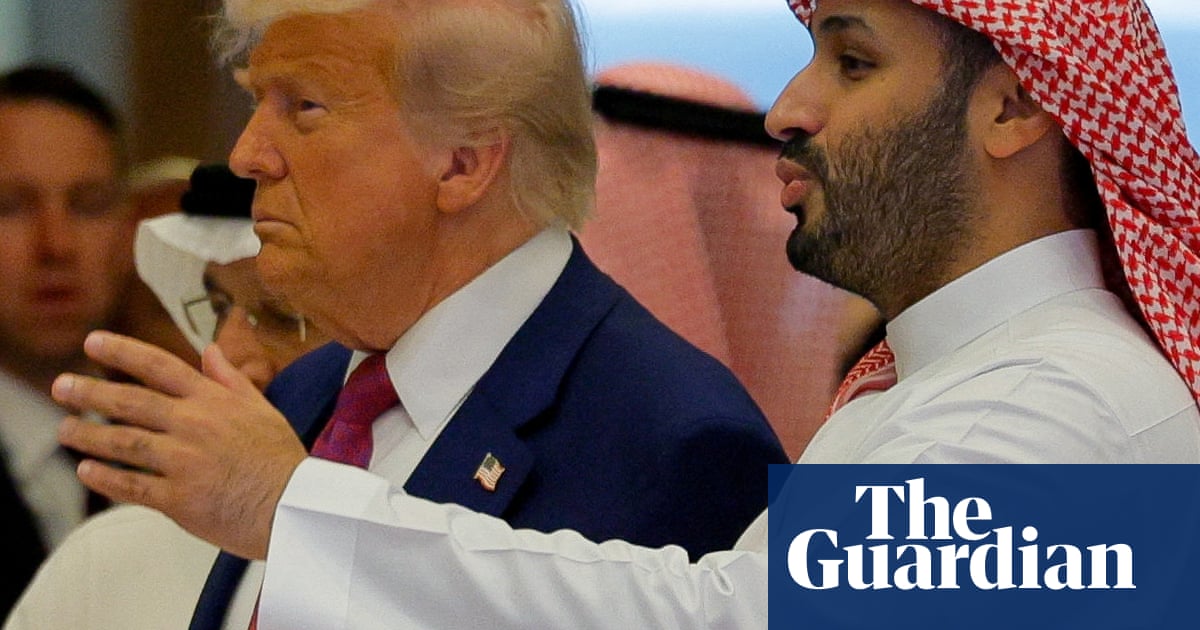On his tour of the Middle East this week,Donald Trumpannounced a slew of multibillion-dollar tech deals with the leaders ofSaudi Arabia, theUnited Arab EmiratesandQatar. With the sale of the US’s most advanced technology, he also sold the American model of the industry that made it: enormous amounts of power concentrated in the hands of a few men.
The announcements poured in last week: the US and the United Arab Emiratesagreedon Abu Dhabi as the site of the largest artificial intelligence campus outside the US. The deal reportedly allows the UAE to import half a million Nvidia semiconductor chips, considered the most advanced in the world for the creation of artificial intelligence products. Saudi Arabia struck a similar deal for semiconductors, obtaining the promise of the sale of hundreds of thousands of Nvidia Blackwell chips to Humain, an AI startup owned by its sovereign wealth fund. Cisco said it had signed a deal with a UAE AI firm to develop the country’s AI sector. The agreements also directed some investment by Saudi firms into US technology and manufacturing. Amazon Web Services and Qualcomm likewise announced deals on cloud computing and cybersecurity.
The agreements were remarkable for several reasons. Styling himself the broker-in-chief, Trump brought along an entourage of dozens of CEOs to the Middle East, including Nvidia’s Jensen Huang, OpenAI’sSam Altman, Elon Musk, Amazon’s Andy Jassy, Palantir’s Alex Karp and two dozen others.
Those executives negotiated their deals face-to-face with Gulf country leaders. Many of those agreements broke with the policies of Joe Biden’s administration, which imposed strict controls on the sales of the US’s most cutting-edge technology. Biden forbade Nvidia and other chipmakers from selling their latest wares to Middle Eastern powers because of the latter’s links to China. Whether the Gulf states keep the tech for themselves as stipulated – the enormous data center is to be built by an Emirati company but managed by American ones – or proffer it to China in a geopolitical backroom deal remains to be seen.
Despite the uncertainty that arose from some corners, the Trump White House put out three press releases that trumpeted how the president had “secured historic investment commitments” that total in the trillions from the three oil-rich nations. A section ofone fact sheetwas headlined: “Never tired of winning.”
The deals stand to enrich the tech CEOs substantially by opening up new audiences for their products. These are the same men at the helm of AI development, and Trump’s use of them as surrogates seems likely to propagate the American model of technological power in new places.
Also notable throughout the trip:Elon Muskdemonstrated he still wields considerable influence in the White House. The world’s richest person may have pivoted from the government cost-cutting project of Doge, but there he was, beside the president once again.
Musk’s presence on the trip had less to do with AI than Altman’s or Huang’s, though. His value to the president’s dealmaking was his power over global internet connectivity. Starlink, the satellite internet division within Musk’s SpaceX that controls more than half the satellites orbiting Earth, inked an agreement for maritime and aviation use inSaudi Arabia. There he goes again: his Tesla Optimus robots performed a dance for Trump and the Saudi crown prince to the tune of YMCA.
